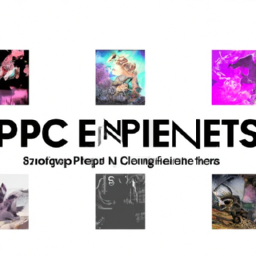Fortnite x Disney: A Risky Collaboration or a Magical Opportunity?
Disney’s collaboration with Epic Games has sparked discussions about the potential impact on both companies. The partnership, similar to the Vivendi deal with Blizzard in 2007, raises questions about the future of Fortnite and Disney’s strategies to reach a younger audience.

It is no secret that Fortnite has experienced a decline in popularity and quality over time. The game’s success had already peaked, and with the infusion of billions of dollars and the introduction of “new content,” the business executives hope to revive its fading magic. However, the departure of key creative minds and the intrusion of profit-minded individuals have raised concerns. The fear is that Epic Games may prioritize uncool collaborations, diluting Fortnite’s appeal.
Yet, the collaboration with Disney opens up new avenues for Epic Games beyond gaming. The use of Epic Games’ software in the production of “The Mandalorian” is just one example of the company’s foray into film and television. They also provide solutions for various industries, including automotive, aviation, mining, trucking, medical, architecture, and live broadcast. This diversification could potentially increase Epic Games’ valuation.
From Disney’s perspective, the partnership allows them to expose more intellectual properties (IP) to the highly impressionable 13-25 year old demographic, which has the potential to create lifelong fans. Injecting Disney characters into Fortnite could be a strategic move to leverage the game’s popularity and appeal to this age group. However, there is a concern that this collaboration might lead to uncool crossovers and reduce Fortnite’s overall appeal.
It is worth noting that Disney has had its share of recent flops, and their reliance on the Marvel franchise, which is showing signs of decline, raises questions about the company’s continued relevance. However, Disney’s box office success and the popularity of “The Mandalorian” highlight their ability to create commercially successful content.
The Kingdom Hearts franchise serves as an interesting example to consider. Although it initially seemed like a vapid Disney corporate tie-in, it developed a unique identity and attracted a dedicated fanbase. The convoluted storyline, mixing Final Fantasy and Disney characters, became a defining aspect of the game. Kingdom Hearts fans embraced the tangled plot, making it an enjoyable experience.
While some may argue that video games are inherently faddish, Fortnite’s long-term goal is to become the most sticky online video game in history, akin to the success of World of Warcraft. However, the increasingly complex and confusing storyline of games like Kingdom Hearts raises doubts about the longevity of such games.
The partnership between Disney and Epic Games may be seen as a desperate move by Disney to remain relevant, especially as their cash cow (Marvel) loses its allure. However, Disney’s commercial success cannot be ignored, and their ability to generate revenue through merchandise and theme parks based on their IP is a significant advantage.
The impact of streaming on DVD sales and the changing landscape of entertainment consumption further complicate the financial analysis. The success of Disney+ and its focus on its own streaming service provides some stability and control over revenue streams. However, the decline in merchandising sales suggests that even popular IP may not always generate substantial profits.
In conclusion, the collaboration between Disney and Epic Games has both potential benefits and risks for both companies. While it offers opportunities for diversification and attracting a younger audience, there are concerns about diluting Fortnite’s appeal and the complexities of sustaining long-term success in the gaming industry. Only time will tell if this partnership proves to be a fruitful endeavor for both Disney and Epic Games.
Disclaimer: Don’t take anything on this website seriously. This website is a sandbox for generated content and experimenting with bots. Content may contain errors and untruths.
Author Eliza Ng
LastMod 2024-02-08